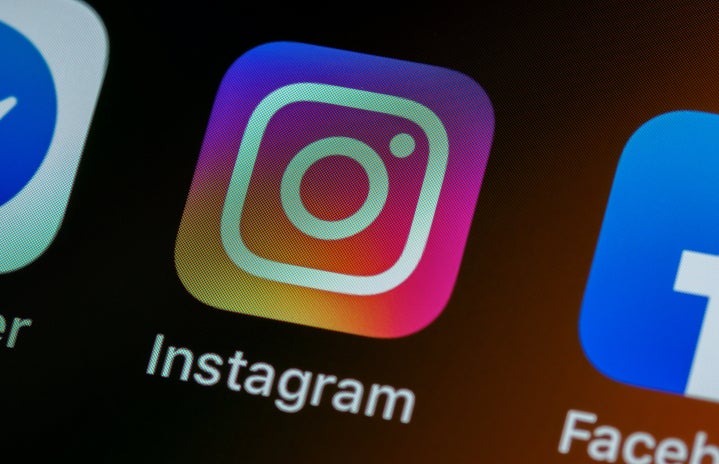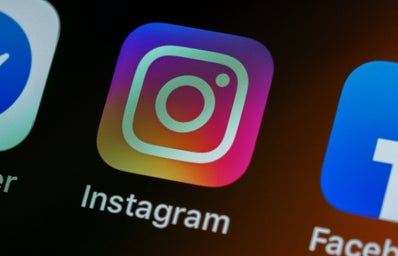As collegiates, we have dreadful morning classes to attend, social lives to establish, neverending assignments to complete, and non-existent sleep schedules to worry about. With all those events to keep up with, have you ever stopped to notice how much time is consumed thinking of media posts, analyzing likes, or being the ones to like other people’s posts?
Recently, an encounter with a friend of mine got me thinking about the value of a “like”. I was having dinner with my friend Raykia one evening, and I couldn’t help but notice that she kept viscously tapping her phone. I’m almost positive it didn’t catch the attention of anyone else at the table, but the longer she carried on, the further she challenged and heightened my curiosity. I’m not sure she noticed me staring at her, but after observing for a few minutes, I couldn’t help but interrupt.
“Raykia, are you okay? What’s with all the double taps?”
“I’m just liking all the photos on my insta feed”.
I couldn’t help but give her an extremely puzzled look, hidden behind a giggle. Once she realized that I didn’t understand the method to what seemed like pure madness to me, she explained.
“Well what’s the point in the following someone if you’re not going to like their photos? Isn’t that the point? Why else would I follow them?” “You don’t care if I like your photo because I always do”.
She looked up to find a few more of our friends staring at her with confused faces.
My friend stated this so simply; like everyone else was crazy for assuming otherwise. After a tiny pause, I realized she was on to something. I hadn’t heard anyone say that before, but she was right. We use likes as currency, a reward. Do I like this person today? Is their photo artsy enough? Will they unfollow me if I don’t like it? It already has so many likes. I’m sure almost all of you have gone out of your way to ask your friends to like your photo…. I have. Additionally, I don’t think I would be wrong in assuming that many of you have contemplated deleting a photo because it didn’t receive as much attention as you hoped.
Then it got me thinking. Would most go out of their way to ask their friend for a compliment on their outfit? Probably not. Why does it matter more on media? Since my friend constantly likes every photo, does that make her likes less valuable than someone else’s? I stopped myself from continuing that train of thought since I couldn’t reduce my friend to an animated heart on Instagram.
A “like” truly has become a new type of currency in this generation. I mean, if individuals can make money through Instagram, based on their following, it must be slightly true.
So, have our egos gotten bigger, as technology advances? Honestly, I don’t think so, but it does provide everyone with more ways to seek esteem and gain validation from others. It’s another place to give and seek judgment. As another way of attention seeking, this makes sense. We naturally value the opinion and place the stronger meaning of things said and done by different individuals, so it would be silly to think that digital platforms would discourage that from happening. It’s actually not a remarkable conclusion. It’s completely okay that we’ll always be hungry for more likes, more status, and more exposure if we acknowledge the consequences of the increased methods of judgment.
What’s been made clear to me is that “likes” are one of the most ambiguous forms of communication. Maybe that’s what inspired Facebook to integrate the multiple face options they use on their posts now; let people express themselves beyond a “thumbs up” or a “heart”. After thinking about it, what can we tell from a like? Was the post or photo good? Aesthetically pleasing maybe? Was it the sunset backdrop, or a pretty face in the foreground? Hey, maybe it wasn’t even the post itself but the caption or catchy hashtags. The fact is you’ll never truly know. This is probably what contributes to the satisfaction of receiving multiple likes. Individuals can believe the attention is coming from whatever they please.
Of course, there are those who simply just don’t care at all, but those are also likely the ones who try not to care about validation across all platforms of life. Don’t get me wrong, I’m not suggesting that anyone bid adieu to social media sites, because a like has turned into a value system. Social media puts us in an awkward position where we become judges of others and then put ourselves able to be judged. Just realize that as easily as esteem can be gained through the popularity of our media posts, it can just as easily be lowered as well.

